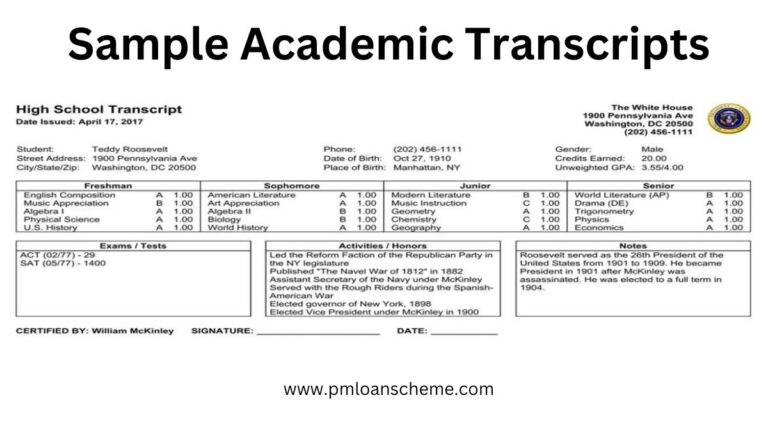Winter Intake in Canada for International Students 2025: The winter intake in Canada runs from January through April or May each year, providing a second chance for students who missed the fall admission deadlines. This intake is particularly beneficial for Indian students looking to continue their education in Canada. However, it’s important to note that the range of courses available during the winter intake may be limited, and the competition for enrollment can be intense due to fewer spots being offered compared to the fall semester.
Winter Intake in Canada for International Students 2025
If you’re considering pursuing higher education in Canada, the winter intake—commonly referred to as the January intake—presents a fantastic opportunity. This intake allows students who missed the fall semester to start their academic journey in January or February. In this guide, we will explore the details of the winter intake in Canada, including application processes, deadlines, popular programs, and the advantages of enrolling in this semester.
What is Winter Intake?
Winter intake in Canada refers to the admission process for universities and colleges that begins in January. Unlike the more popular fall intake, which starts in September and attracts a larger pool of students, the winter intake typically has fewer applicants. This can lead to a less competitive environment, making it an attractive option for many students.

Why Choose Winter Intake?
- Second Chance for Applicants: Many students miss the fall intake deadlines for various reasons. The winter intake provides a vital opportunity for these students to pursue their academic goals without waiting an entire year.
- Less Competitive Environment: With fewer applications submitted during the winter intake, students may find it slightly easier to gain admission to their preferred programs.
- Small Class Sizes: The winter semester often results in smaller class sizes, which can lead to more personalized attention from instructors and better interaction with peers.
- Diverse Course Offerings: While not as extensive as the fall intake, many universities still offer a variety of programs during the winter semester, including popular fields such as Computer Science, Business Administration, and Health Sciences.
Education Loan for Abroad Studies
Details of Winter Intake Canada for International Students
| Aspect | Details |
|---|---|
| Intake Period | January (typically starts in the first or second week of January) |
| Application Deadlines | September to November (exact dates vary by university) |
| Key Universities | – University of Alberta – McGill University – University of Calgary – Ryerson University – University of Ottawa – Niagara College – University of Waterloo |
| Popular Programs | – Business Administration – Computer Science – Health Sciences – Engineering – Arts and Humanities |
| Advantages | – Less competitive admissions – Smaller class sizes – Opportunity to enhance applications – Focused program offerings |
| Challenges | – Limited course availability – Fewer extracurricular activities – Harsh winter weather |
| Tuition Fees (Approximate) | – University of Alberta: CAD 30,090 – McGill University: CAD 56,544 – University of Calgary: CAD 40,103 – Niagara College: CAD 17,215 – Ryerson University: CAD 38,457 – University of Ottawa: CAD 26,354 |
| Scholarship Opportunities | – Lester B. Pearson International Scholarship (University of Toronto) – University of Calgary International Entrance Scholarship – Humber International Entrance Scholarships – Vanier Canada Graduate Scholarships |
| Required Documents | – Academic transcripts – Proof of English proficiency (IELTS, TOEFL) – Letters of recommendation – Statement of purpose – CV/Resume – Passport and photos |
For the winter intake in Canada, which is often referred to as the January intake, many universities will open their doors for international students in 2025. This intake is a great option for students who may have missed the September intake and are looking for alternative pathways to continue their education.
Universities Offering Winter Intake in Canada 2025
Several universities and colleges across Canada will be accepting applications for the January 2025 intake. Here’s a list of some of the notable institutions:
Universities:
- Acadia University
- Algoma University
- Brock University
- Cape Breton University
- University of Guelph
- Nippissing University
- Trinity Western University
- University of Regina
- St. Mary’s University (Calgary)
- University of Manitoba
- University of Northern British Columbia
- University of Toronto
- McGill University
- University of British Columbia
- Carleton University
- University of Ottawa
- McMaster University
Colleges:
- Bow Valley College
- Vancouver Community College
- Durham College
- Sheridan College
- Fanshawe College
- Humber College
- Centennial College
- Lambton College
- Georgian College
- North Island College
Application Deadlines
The application deadlines for the January intake typically vary by institution but generally fall between August 2024 and mid-January 2025. It’s advisable to start your application process early to ensure you meet the deadlines and have sufficient time to gather all necessary documents. Here’s a general timeline for the application process:
- April – June 2025: Research universities and prepare for English language tests (like IELTS, TOEFL).
- July – September 2025: Complete your English language tests.
- September – December 2025: Submit your applications to universities along with required documents (transcripts, letters of recommendation, statement of purpose).
- November – January 2026: Receive acceptance letters and confirm your enrollment by paying any required deposits.
Available Courses
While the range of courses offered during the winter intake is typically smaller than the fall intake, several programs are still available across various fields. Some common courses include:
- Business and Management
- Hospitality
- Computer Science and Engineering
- Psychology
- Economics
- Law and Legal Studies
- Fashion Design
- Healthcare-related courses
It’s important to check each university’s offerings to see which specific programs are available for the January 2025 intake.
Benefits of Winter Intake
- Backup Option: For students who missed the September intake, January provides a second chance to enroll without waiting another year.
- Reduced Competition: Generally, fewer students apply for the winter intake, which can lead to a higher chance of admission.
- Accelerated Learning: The winter semester is shorter, typically running from January to April, allowing students to complete their studies more quickly.
Winter Intake Universities with Application Deadline
Here’s a comprehensive table summarizing various universities in Canada that will offer winter intake (January) in 2025, along with their application deadlines and semester start dates:
| University/College | Application Deadline | Semester Start Date |
|---|---|---|
| Acadia University | August 2024 – January 2025 | Early January 2025 |
| Algoma University | August 2024 – December 2024 | January 2025 |
| Brock University | September 2024 – November 2024 | January 2025 |
| Cape Breton University | August 2024 – December 2024 | January 2025 |
| University of Guelph | September 2024 – November 2024 | Early January 2025 |
| Nippissing University | August 2024 – December 2024 | January 2025 |
| Trinity Western University | August 2024 – December 2024 | January 2025 |
| University of Regina | September 2024 – November 2024 | Early January 2025 |
| St. Mary’s University (Calgary) | August 2024 – December 2024 | January 2025 |
| University of Manitoba | August 2024 – November 2024 | Early January 2025 |
| University of Northern British Columbia | August 2024 – November 2024 | Early January 2025 |
| University of Toronto | September 2024 – November 2024 | Early January 2025 |
| McGill University | September 2024 – November 2024 | Early January 2025 |
| University of British Columbia | September 2024 – November 2024 | Early January 2025 |
| Carleton University | September 2024 – November 2024 | Early January 2025 |
| University of Ottawa | September 2024 – November 2024 | Early January 2025 |
| McMaster University | September 2024 – November 2024 | Early January 2025 |
Notes:
- Application Deadlines: The application deadlines can vary by program and university, so it’s advisable to check the specific details on each university’s website.
- Start Dates: Most universities will start their winter semester in early January 2025, typically in the first or second week.
Financial Considerations
Tuition fees in Canada can vary widely, typically ranging from CAD 15,000 to CAD 20,000 per year, along with living expenses estimated at around CAD 20,635. Prospective students should also explore scholarship opportunities that may be available to them, such as the Lester B. Pearson International Scholarship at the University of Toronto and various awards from other institutions
If you are considering applying for the winter intake in Canada, it’s crucial to stay organized and proactive in your preparations. For more detailed information, including specific university offerings and application tips, you may want to refer to educational consulting services or the official university websites directly.
Universities Offering Winter Intake
Several esteemed Canadian universities accept applications for the winter intake. Some notable institutions include:
- University of Alberta: Known for its strong research programs.
- McGill University: Offers a variety of courses with international recognition.
- University of Calgary: Provides innovative programs, particularly in health and engineering.
- University of Ottawa: A bilingual institution that offers a diverse range of programs.
- Ryerson University: Known for its focus on career-oriented education.
Application Timeline
For students considering the winter intake, adhering to a timeline is crucial. Here’s a general timeline to guide you through the application process:
- Research (April to June): Start researching universities and programs that align with your career goals. Make a list of institutions that have a winter intake.
- Standardized Tests (July to September): Prepare and take necessary standardized tests such as IELTS, TOEFL, GRE, or GMAT, depending on the requirements of your chosen programs.
- Application Preparation (September to November): Gather all required documents, including academic transcripts, letters of recommendation, and a Statement of Purpose (SOP). Complete your application forms meticulously and submit them within the deadlines.
- Admission Response (December to January): After submission, respond promptly to any communications from universities, which may include interview invitations.
- Visa Application (January to February): Upon receiving an acceptance letter, begin your visa application process. Ensure you also explore financial aid options, including scholarships and education loans.
Key Admission Requirements
The specific requirements for admission can vary by institution and program, but generally, students should prepare the following documents:
- Academic Transcripts: Official records from previous educational institutions.
- Standardized Test Scores: Results from English language proficiency tests and any required entrance exams.
- Letters of Recommendation: Typically two to three letters from academic or professional references.
- Statement of Purpose: A personal essay outlining your academic interests and career goals.
- Resume or CV: Highlighting relevant experiences and skills.
Popular Courses for Winter Intake
During the winter intake, students often gravitate towards certain fields of study due to their career prospects and industry demand. Popular courses include:
- Computer Science: With the tech industry booming, many students pursue degrees in software development, data science, and cybersecurity.
- Business Administration: This broad field remains a staple for those seeking leadership roles across various industries.
- Health Sciences: Programs related to nursing, pharmacy, and public health are increasingly in demand as healthcare continues to grow.
Scholarships and Financial Aid
There are several scholarship opportunities available for international students applying for the winter intake. Many Canadian universities offer scholarships specifically for winter intake students to attract a diverse student body. Additionally, governmental and private organizations may provide financial aid. It’s important to research these options early and meet application deadlines.
Conclusion
The winter intake in Canada is an excellent opportunity for students who wish to begin their studies in January. With a less competitive application process, smaller class sizes, and diverse course offerings, it’s a pathway that many international students choose. By following the outlined steps and preparing thoroughly, you can embark on an exciting academic journey in Canada.
FAQs About Winter Intake in Canada 2025
What is the winter intake in Canada?
The winter intake, often referred to as the January intake, is the second major admission period for universities and colleges in Canada. It allows students who missed the September intake to enroll in various programs starting in January.
Which universities in Canada offer winter intake for 2025?
Universities in Canada offer winter intake for 2025 such as University of Toronto, McGill University, University of British Columbia, University of Alberta, Carleton University, University of Ottawa, Many more colleges and universities across Canada
What are the typical application deadlines for winter intake in Canada?
Application deadlines for the winter intake usually range from August 2024 to December 2024, depending on the university. Some institutions may accept applications as late as mid-January 2025
What programs are available during the winter intake?
While the range of courses is typically narrower than in the fall, students can still find programs in various fields such as Business, Computer Science, Health Sciences, Engineering, Hospitality, Psychology.
What are the benefits of choosing the winter intake?
1. Less competition for admission.
2. Smaller class sizes, allowing for more personalized instruction.
3. Opportunities to enhance academic qualifications before applying
What are the financial considerations for studying in Canada during winter intake?
Tuition fees vary widely, ranging from CAD 15,000 to CAD 20,000 per year. Additionally, living expenses are estimated at around CAD 20,635 annually. Scholarships may also be available for international students
How do I apply for a student visa for the winter intake?
International students should apply for a Canadian student visa at least 6-12 months before their intended start date. The visa process can take up to 12 weeks, so early application is recommended
Are there scholarships available for winter intake students?
Yes, several scholarships are available for students enrolling in the winter intake, such as:
1. Lester B. Pearson International Scholarship (University of Toronto)
2. University of Calgary International Entrance Scholarship
3. Karen McKellin International Leader of Tomorrow Award (University of British Columbia)
Can I work while studying during the winter intake?
Yes, international students are generally allowed to work part-time while studying in Canada, provided they meet the conditions of their study permit
How can I prepare for the winter intake?
To prepare for the winter intake, students should:
1. Research universities and programs well in advance.
2. Prepare and take required English language proficiency tests (like IELTS or TOEFL).
3. Gather necessary documents and apply as early as possible.


